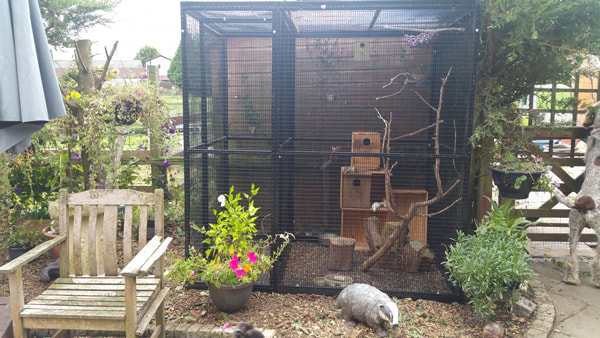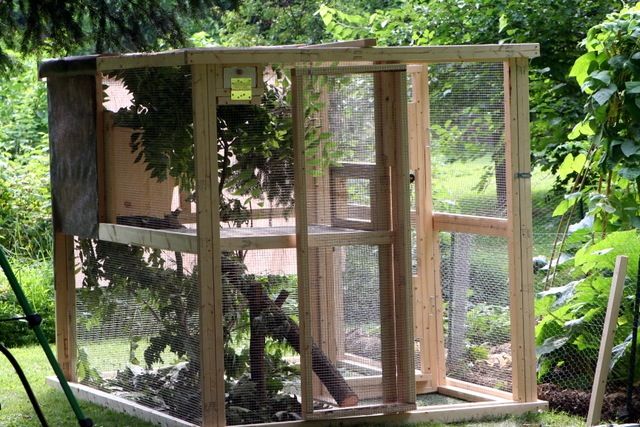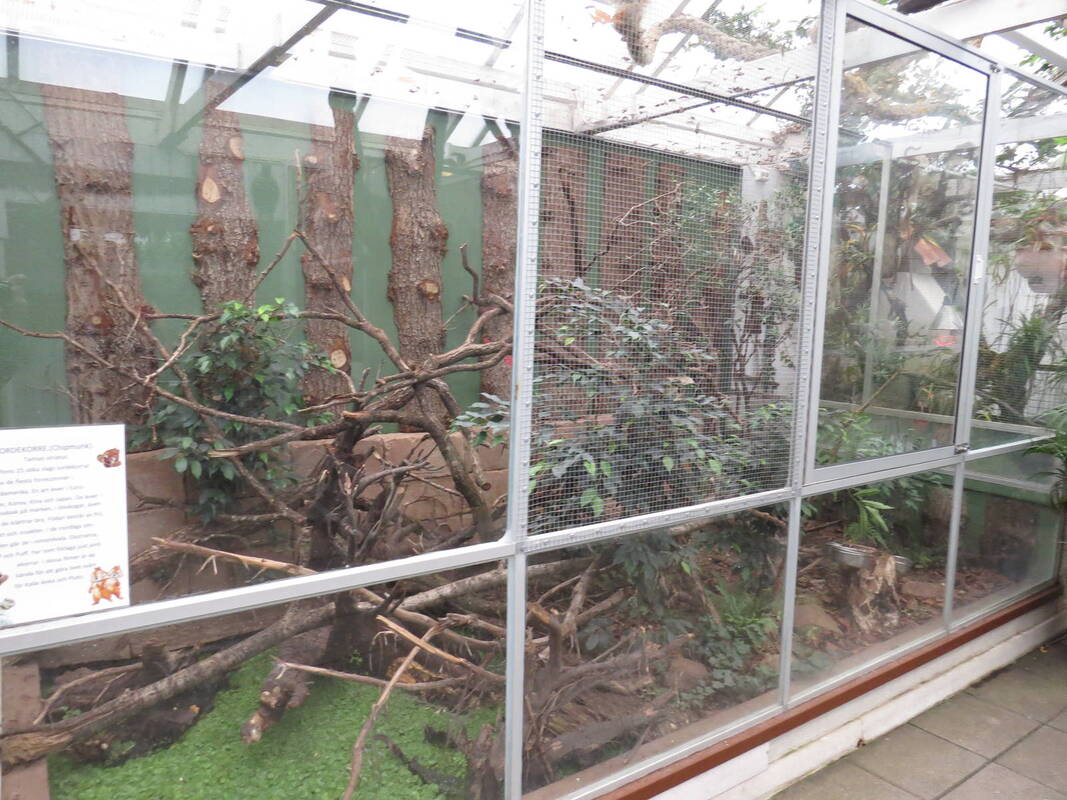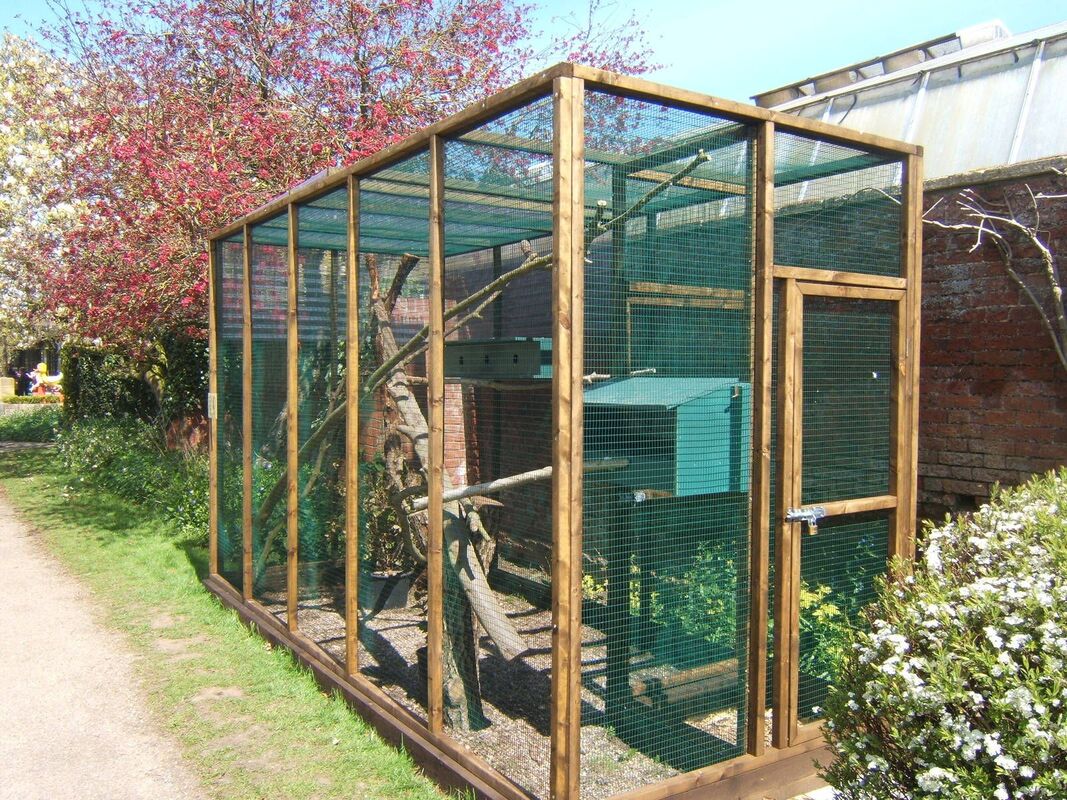General Information:
The most commonly kept chipmunks are Siberian chipmunks (Eutamias sibiricus) and the Eastern chipmunk (Tamias striatus). Distingushing between the two can be achieved by looking at their dentition or their stripes; the Eastern chipmunk will have a white stripe between two black stripes,
They can live on average 4-6 years, but ages up to 10 years have been documented.
They usually exhibit diurnal behaviour and are omnivorous.
Despite being a social rodent, chipmunks - commonly referred to as 'ground squirrels' - typically aren't easy to handle and can be quite hard to keep. Due to this, we would only recommend chipmunks to keepers who're experienced with exotic rodents.
Buying and selling chipmunks is illegal in Great Britain due to them being classed as an invasive alien species by the European Commission. If you own a chipmunk, you're legally allowed to keep them throughout their natural lives, but please be familiar regarding the laws of keeping chipmunks.
Useful Links:
Care:
Housing/Enrichment:
There are a few vital aspects to the enclosures that must be met:
Chipmunks are best housed in large metal bird cages or aviaries. Chipmunks benefit from an outdoor set up, but can be kept indoors. Most keepers recommend having a cage that you have a double door system, or an area 'section-off' into secure areas for cleaning and maintaining their cage to help prevent escapes. As ground squirrels, many people preference floor space over height, but chipmunks can and do climb.
Ideally, the cage should have either a deep base full of substrate for foraging and digging, or have a digging box for foraging and digging. In the wild, chipmunks will spend most of their days foraging for food, and hoarding food.
As active and intelligent rodents prone to behavioural issues, you must provide chipmunks with plenty of enrichment. Chipmunks will utilise ropes, nest boxes (have at least 1 per chipmunk), bridges, ladders, branches, and shelving.
They can live on average 4-6 years, but ages up to 10 years have been documented.
They usually exhibit diurnal behaviour and are omnivorous.
Despite being a social rodent, chipmunks - commonly referred to as 'ground squirrels' - typically aren't easy to handle and can be quite hard to keep. Due to this, we would only recommend chipmunks to keepers who're experienced with exotic rodents.
Buying and selling chipmunks is illegal in Great Britain due to them being classed as an invasive alien species by the European Commission. If you own a chipmunk, you're legally allowed to keep them throughout their natural lives, but please be familiar regarding the laws of keeping chipmunks.
Useful Links:
- ec.europa.eu/environment/nature/invasivealien/index_en.htm#:~:text=Invasive%20Alien%20Species%20(IAS)%20are,consequences%20for%20their%20new%20environment.
- www.gov.uk/government/publications/invasive-alien-species-licence-to-move-and-keep-them-in-captivity-ias-a01
Care:
Housing/Enrichment:
There are a few vital aspects to the enclosures that must be met:
- The enclosure must be entirely secure (often built from strong metal structures) to prevent escapes
- The enclosure must be able to be shut into segments to ensure the animal inside can be safely and properly cleaned without the use of trapping
- The enclosure must have heating on a thermostat and all electrical items must be PAT tested annually. All electrical cables and fittings must be covered securely so the animal inside cannot access them
- How the enclosure was constructed, and the type of enclosure the animal is housed in (including measurements) to ensure the animal is able to be housed comfortably?
- What are the controls in place to ensure escapes are not possible?
- Is there adequate furnishings and enrichment?
- Is the temperature able to be controlled?
- Is ventilation adequate?
- Can the enclosure be drained?
- Is cleanliness maintained?
- Are there precautions in place to prevent spread of disease?
- Do the animals have access to bedding, food, and water?
- Is the food storage hygienic?
- Are there precautions in place in the event of a fire or other emergencies?
- Are storage and waste disposal associated with keeping the animal satisfactory?
Chipmunks are best housed in large metal bird cages or aviaries. Chipmunks benefit from an outdoor set up, but can be kept indoors. Most keepers recommend having a cage that you have a double door system, or an area 'section-off' into secure areas for cleaning and maintaining their cage to help prevent escapes. As ground squirrels, many people preference floor space over height, but chipmunks can and do climb.
Ideally, the cage should have either a deep base full of substrate for foraging and digging, or have a digging box for foraging and digging. In the wild, chipmunks will spend most of their days foraging for food, and hoarding food.
As active and intelligent rodents prone to behavioural issues, you must provide chipmunks with plenty of enrichment. Chipmunks will utilise ropes, nest boxes (have at least 1 per chipmunk), bridges, ladders, branches, and shelving.
Socialising:
In the wild, chipmunks live in loose colonies and mostly socialise for mating purposes. For this reason, we strongly encourage that you house chipmunks in neutered male/female groups/harem groups, same sex colonies are possible but typical adult males fight, but you can house them solitary too. Not all chipmunks are compatible and sometimes individuals will never get along, but space is a massive factor in this; your chipmunks must have areas or beds in their living environment where they can retreat to if they want some alone time.
The same applies when we socialise with our chipmunks. If obtained from a reputable breeder, your chipmunks may be tame, however, that doesn't mean they'll sit for cuddles. Most chipmunks are not social and are difficult to handle if at all. They make challenging pets to tame and have retained much of their wild behaviour.
Diet:
Chipmunks are omnivores, meaning they need both plant and animal materials to stay healthy.
Fortunately, there are suitable chipmunk mueslis commercially available. Even if feeding chipmunk muesli, it's still important that you add in other food items:
Supplements shouldn't be required with a balanced diet.
Please feel free to ask questions.
In the wild, chipmunks live in loose colonies and mostly socialise for mating purposes. For this reason, we strongly encourage that you house chipmunks in neutered male/female groups/harem groups, same sex colonies are possible but typical adult males fight, but you can house them solitary too. Not all chipmunks are compatible and sometimes individuals will never get along, but space is a massive factor in this; your chipmunks must have areas or beds in their living environment where they can retreat to if they want some alone time.
The same applies when we socialise with our chipmunks. If obtained from a reputable breeder, your chipmunks may be tame, however, that doesn't mean they'll sit for cuddles. Most chipmunks are not social and are difficult to handle if at all. They make challenging pets to tame and have retained much of their wild behaviour.
Diet:
Chipmunks are omnivores, meaning they need both plant and animal materials to stay healthy.
Fortunately, there are suitable chipmunk mueslis commercially available. Even if feeding chipmunk muesli, it's still important that you add in other food items:
- Suitable nuts such as hemp, millet, hazel, and peanuts
- 50% grain is advised.
- Fruit and vegetables (as chipmunks love to hoard food, please check their cage to remove any food that may spoil if uneaten)
- Insects such as locusts, crickets, and mealworms.
- Forage such as flowers, leaves, bark, and roots
- Cooked chicken and boiled eggs
Supplements shouldn't be required with a balanced diet.
Please feel free to ask questions.




